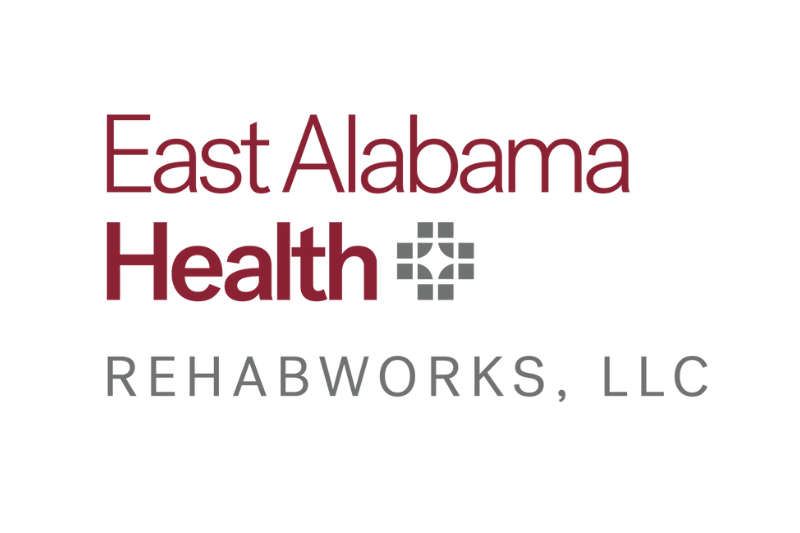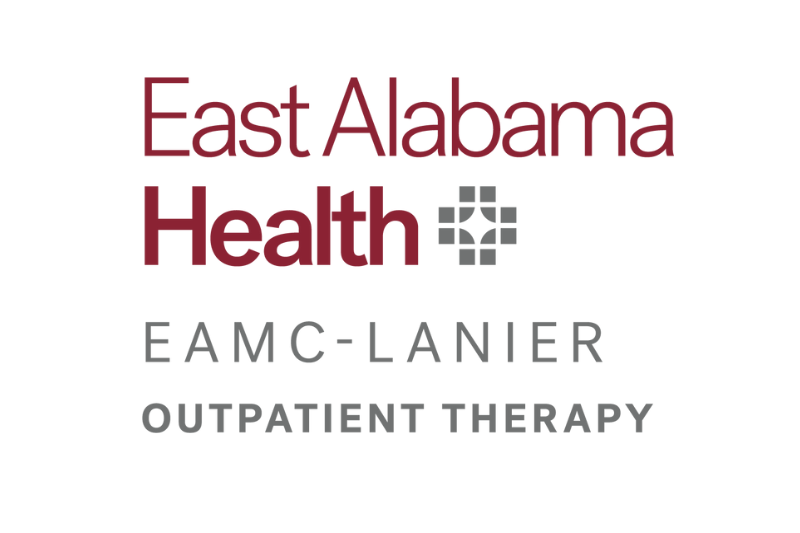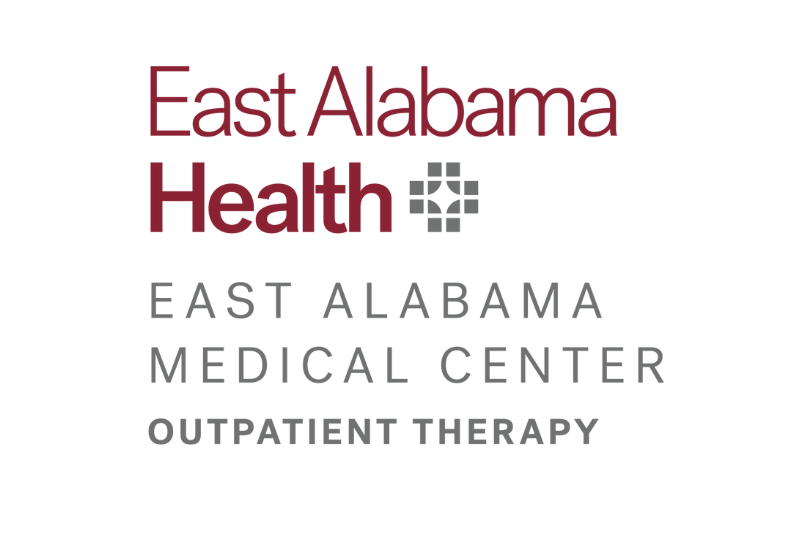Outpatient Rehabilitation
East Alabama Health provides specialized outpatient rehabilitation therapy services at our Outpatient Therapy at EAMC and EAMC-Lanier locations, as well as RehabWorks, LLC. We offer therapeutic interventions across three primary disciplines: physical therapy, occupational therapy and speech/language therapy. In addition, our services include sports medicine, sports performance programs and industrial medicine services.
Our rehabilitation teams provide both short-term and long-term care programs that help restore function and movement to those who have been affected by injury or illness. Our licensed therapists are here to develop a plan that is uniquely tailored to your abilities, needs and goals.
What is it?
Electromyography (EMG) is used to assess the health of muscles and the nerve cells that control them. An EMG measures the electrical activity of muscles at rest and during contraction. Nerve conduction studies (NCS) use electrodes taped to the skin to measure how well and how fast the nerves can send electrical signals.
Why is it done?
An EMG is performed to find diseases that damage muscle tissues, nerves, or the junctions between nerve and muscle. It can also be used to find the cause of weakness, paralysis, or muscle twitching. Nerve conduction studies are used to find damage to the peripheral nervous system, which includes all of the nerves that lead away from the brain and spinal cord.
How long will it take?
Our Board Certified clinical electrophysiologic specialists will provide accurate and complete electrodiagnostic reports within 24 hours of the studies.
Who may benefit?
Anyone experiencing symptoms of the following conditions may benefit:
- Mononeuropathies: Carpal tunnel, cubital tunnel, posterior interosseous, tarsal tunnel, meralgia parasthetica
- Radiculopathies: Cervical, thoracic, lumbar, sacral
- Plexopathies: Brachial, lumbar, sacral
- Myopathy: Polymiositis, dermatomyositis
- Motor Neuron Disease: ALS, spinal muscular atrophy, post-polio
- Nyotonic Disease: Nyontonia, congenital myotonic dystrophy
- NMJ disease: Myasthenia gravis, Lambert-Eaton
Who performs EMGs and NCSs
In our clinics, Electromyography and Nerve conduction Studies are performed by Physical Therapists with extensive training and experience and who are Electrophysiologic Certified Specialists by the American Board of Physical Therapy Specialists
Our Therapists:
- Quinn Millington PT, DPT, ECS, OCS, ATC
- Darin White PT, DPT, ECS
- Mark Simmons, PT, DPT, ECS, CKTP
These services are rendered through an amazing organization EMG Solutions. The therapists from EMG provide excellent service. Our physicians, finance department, and most importantly our patients, love them. We highly recommend EMG Solutions to any health care facility.
RehabWorks industrial therapists can assist both employers and workers with a number of issues, including workplace injuries, workplace design/ergonomic site inspections, injury prevention programs, and more.
Therapeutic interventions include exercise, massage, wrapping and other techniques to reduce swelling and discomfort. For more information, call (334) 528-6838.
Therapies for orthopedic patients recovering from joint replacement, fracture, injuries and other conditions.
Therapies for autism, developmental delays, feeding and swallowing disorders, motor coordination issues, speech/language impairments and much more.
RehabWorks therapists created an individualized program to help patients recover from injury so they can return to their active lifestyle and level of performance.
A multidisciplinary team of occupational, physical and speech therapists work with stroke patients and their caregivers to overcome the functional impairments that can occur after a stroke.
Pediatric speech/language, physical and occupational therapists work together to create a comprehensive, individualized therapeutic program for children with autism and other disorders.
Physical therapy, occupational therapy and speech-language pathology services can be beneficial throughout various stages of Alzheimer's or dementia. Physical therapy can improve balance, muscle strength, and mobility and provide pain management. Occupational therapy can help patients and caregivers learn to manage tasks of daily living safely and with as little stress as possible. Speech-language pathologists can diagnose and treat swallowing disorders associated with dementia as well as provide assessments for cognitive and communication abilities and recommend strategies to help manage difficulties.
Dry needling is a technique that physical therapists use to treat myofascial pain. The technique uses a “dry” needle, one without medication or injection, inserted through the skin into areas of the muscle, known as trigger points. Physical therapists use dry needling with the goal of releasing or inactivating trigger points to relieve pain or improve range of motion.
Dry needling involves a thin filiform needle that penetrates the skin and stimulates underlying myofascial trigger points and muscular and connective tissues. The needle allows a physical therapist to target tissues that are not manually palpable.
RehabWorks’ occupational therapists help individuals living with low vision or macular degeneration perform activities of daily living safely and independently so they can live their lives to the fullest.
While there is no cure for Parkinson’s disease, physical and occupational therapy can help patients with Parkinson’s better manage balance problems, lack of coordination, fatigue, pain, gait issues, immobility and weakness.
RehabWorks can help people with many issues surrounding amputation and adjusting to prosthesis, including gait issues, joint contracture prevention, phantom limb, residual limb healing, prosthesis management, and physical and occupational therapies to increase independence and help with activities of daily living.
East Alabama Health offers a preschool language group for qualifying patients. Please contact RehabWorks LLC or one of our Outpatient Therapy at EAMC locations for more information.
For patients with spine or spinal cord injuries, RehabWorks physical therapists can facilitate the restoration of muscle strength, flexibility, improve mobility, coordination, and maintain body functions through exercise. Massage, aquatic therapy, and other treatments can relieve pain. Gait training may be taught to patients with difficulty walking, which could include teaching the patient how to use assistive devices (e.g., walker, cane). Occupational therapists help patients cope with everyday life and help patients regain independence by assisting with tasks such as dressing, bathing, food preparation, etc.
To schedule an appointment
Individuals:
Contact the outpatient rehabilitation location most convenient to you to set up an appointment. Some services will require a prescription or an order from your doctor.
Physicians:
To refer a patient, give patients a prescription/referral and provide them with information about the RehabWorks locations so they can choose the office most convenient for them. Alternatively, your nurse may fax RehabWorks a physician’s order that includes the patient’s information, and our staff will contact the patient to arrange the appointment time/date.



